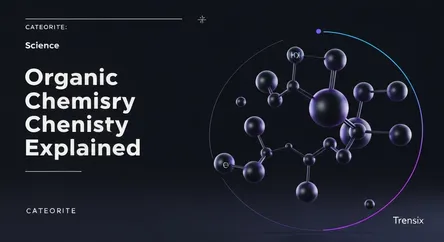Science
Organic Chemistry Explained

A concise guide to organic chemistry, the study of carbon compounds. Understand its relevance in medicine, materials, and everyday life.
What is it?
Organic chemistry is the scientific study of the structure, properties, and reactions of organic compounds, which are molecules that contain carbon atoms in covalent bonds. The field is vast because carbon can form stable bonds with many other elements and with itself, creating long chains and complex rings. This branch of chemistry initially focused on compounds produced by living organisms but has expanded to include human-made substances like plastics. It is fundamentally the "chemistry of life" as all major biological molecules—proteins, carbohydrates, lipids, and nucleic acids—are organic.
Why is it trending?
Organic chemistry is constantly at the forefront of innovation. It is central to the development of new pharmaceuticals, driving the discovery of life-saving drugs. Advances in polymer science, a subfield of organic chemistry, are leading to novel materials with unique properties, from biodegradable plastics to advanced composites for aerospace. Furthermore, as the world seeks sustainable solutions, organic chemistry is critical for creating biofuels, improving solar cell efficiency, and developing greener chemical processes to reduce environmental impact.
How does it affect people?
Organic chemistry's impact is ubiquitous. It affects our health through medicines, vitamins, and diagnostic tools. It's in the clothes we wear (nylon, polyester), the food we eat (sugars, fats), and the soaps and detergents we use. The fuels that power our cars and heat our homes are organic compounds. From the plastic casing of your phone to the ink on this page, the products developed through an understanding of organic chemistry are integral to modern daily life and technological progress.